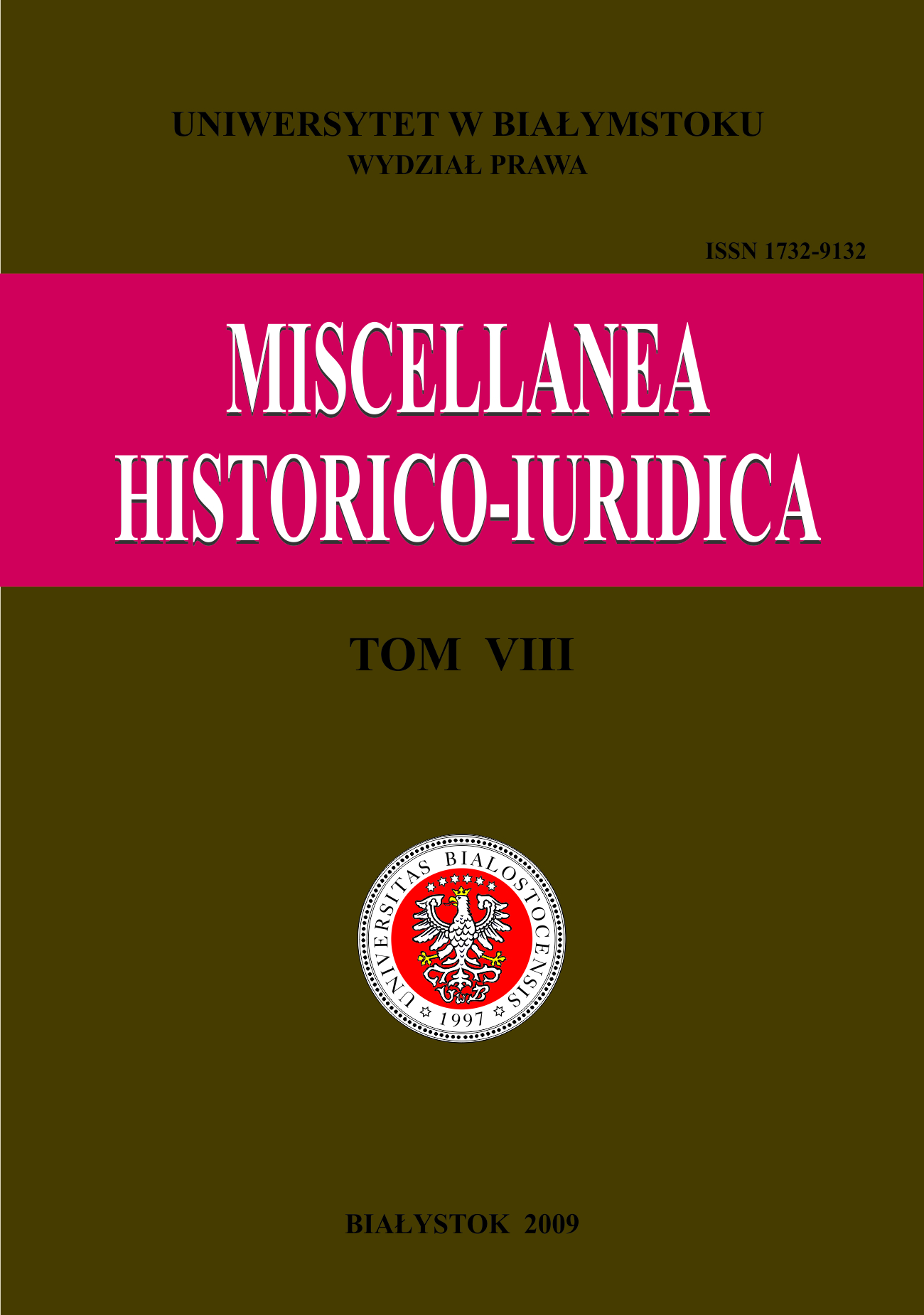Państwowy arbitraż w ZSRR
Keywords:
Soviet law, State’s arbitrationAbstract
The introduction of planned economy in Russia after the 1917 October Revolution had a result that the whole economy was treated as one state owned organization. From 1922 the courts’ jurisdiction in cases between state owned enterprises was abolished and these cases were transferred to arbitration committees. On May 3, 1931 the state’s economic arbitration was established. It was separated completely from the courts’ system and was included into administration structures. It had nothing in common with the private arbitration and with the conciliatory proceedings. The state’s arbitration was an instrument of central planning and its activity were to strengthen the realization of economic plans. By doing it, the state’s arbitration performed two functions in the management of economy. It could pass legal acts on one side and on the other it considered the economic disputes between state institutions. From 1931 to October 1, 1991 (when arbitration was abolished) its functions have not been changed. The analysis of legal character of this institution causes problems and controversies among lawyers. The state’s arbitration was a hybrid. It was bounded with the administration and the arbitrators, very often not being lawyers, were not independent. From the other hand, the arbitration proceedings was somehow connected with the proceedings applied in the courts. Despite that, it should be treated as a separated proceedings. The state’s arbitration was an administrative, not judicial body.







